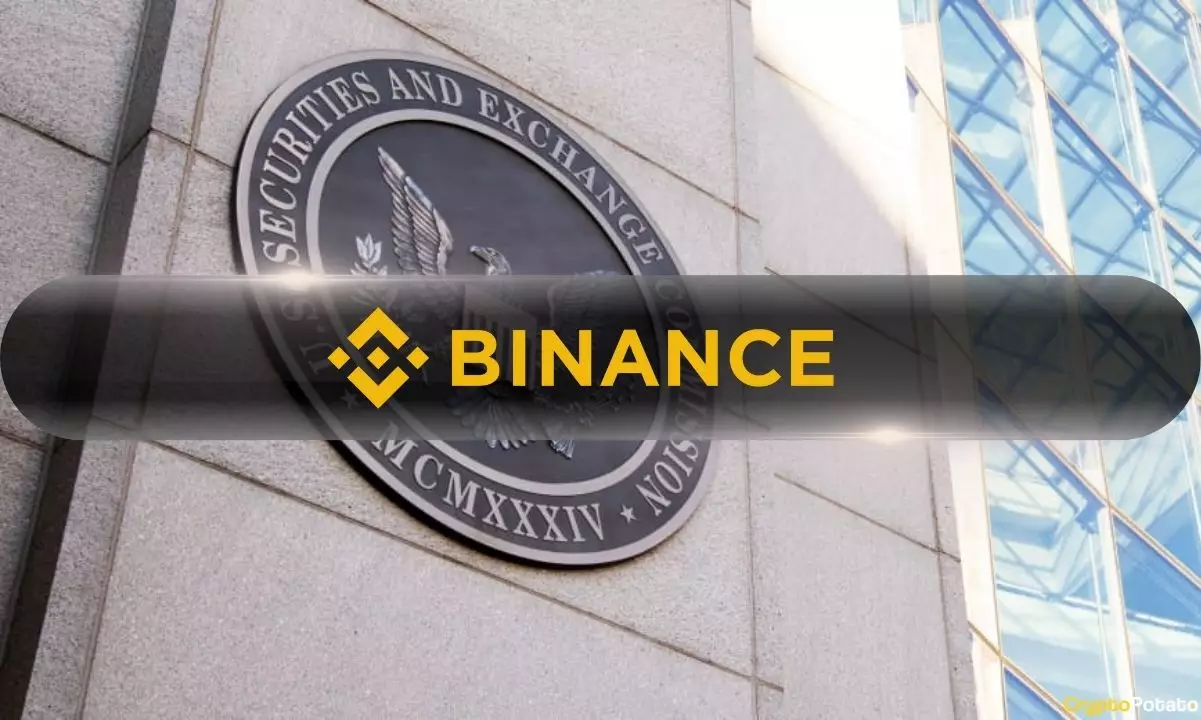The U.S. Securities and Exchange Commission (SEC) has intensified its legal actions against Binance, one of the largest cryptocurrency exchanges globally, along with its American subsidiary Binance.US and its former CEO, Changpeng Zhao. This confrontation highlights the SEC’s efforts to assert its authority over digital asset trading platforms, particularly those deemed to operate as unregistered securities exchanges. The agency’s lawsuit, which has raised eyebrows and questions of validity, centers on the assertion that various digital tokens, including Binance’s BNB and several others, qualify as securities under the established Howey Test.
At the heart of the SEC’s case lies the Howey Test, a crucial legal framework used to determine whether particular financial instruments fall under securities regulations. The test scrutinizes three essential components: the existence of an investment of money, the presence of a common enterprise, and an expectation of profit reliant on the efforts of a third party. The SEC posits that these criteria are met in the case of Binance, arguing that users were led to believe their investment values were directly tied to the success and operational efficacy of the Binance ecosystem. This claim aims to portray BNB and other associated cryptocurrencies as securities, thereby warranting SEC oversight.
Furthermore, the SEC’s filing extends beyond mere accusations. It challenges the notion posited by Binance that secondary market transactions escape the ambit of securities’ regulations, reinforcing its stance that even these trades must adhere to the standards outlined in the Howey Test. This legal maneuvering demonstrates the agency’s determination not only to hold Binance accountable but also to establish a precedent for governing similar cryptocurrency trading operations going forward.
In response to the SEC’s amplified complaints, Binance and Zhao submitted a motion on November 4 to dismiss the amended lawsuit. They argued that the SEC’s allegations lacked substantive evidence to support its claims. Criticism of the SEC’s approach has surged, with much of it directed at perceived inconsistencies in enforcement practices. Notably, Paul Grewal, the legal chief of Coinbase, voiced concerns through social media, questioning why digital assets as prominent as Ethereum (ETH) and Bitcoin (BTC) have not been classified as securities.
The discontent surrounding the SEC’s actions has been compounded by reactions from other industry stakeholders. Stuart Alderoty, the legal officer for Ripple, lambasted SEC Chair Gary Gensler, who is slated to vacate his position in early 2025. Alderoty accused Gensler of hastily preparing the latest legal brief, which he claimed is riddled with recycled arguments that have previously been debunked. This environment of contention paints a stark picture of the ongoing tussle between traditional regulatory frameworks and the rapidly evolving landscape of digital assets.
Among the various criticisms leveled at the SEC, some industry voices, like crypto attorney John Deaton, have urged the agency to revisit the original intent behind the Howey decision. Deaton accentuates that intrinsic value and speculative nature should not obfuscate the core principles of what constitutes a security. His perspective emphasizes the need for regulatory clarity in a technology-driven environment that continuously challenges existing norms.
As the SEC continues to assert its authority, the broader cryptocurrency community remains apprehensive about the implications of this ongoing litigation. The agency’s insistence that certain cryptocurrencies, including BNB, Solana (SOL), Cardano (ADA), and others—totalling eleven digital assets—be classified as securities could significantly reshape the regulatory landscape for cryptocurrency exchanges. The agency’s rigorous actions reflect efforts to establish a firmer grip on an industry characterized by volatility and rapid evolution.
The unfolding legal battle between the SEC and Binance raises pressing questions about the future of cryptocurrency regulation in the United States. The SEC’s resolve underscores its commitment to enforcing traditional securities laws in the face of technological innovation. Whether this approach will pave the way for a more harmonious relationship between regulators and the crypto industry, or instigate further backlash and legal complexities, remains to be seen. As the industry evolves, so too must the frameworks used to govern it, ideally fostering an environment conducive to innovation while ensuring requisite investor protections.

